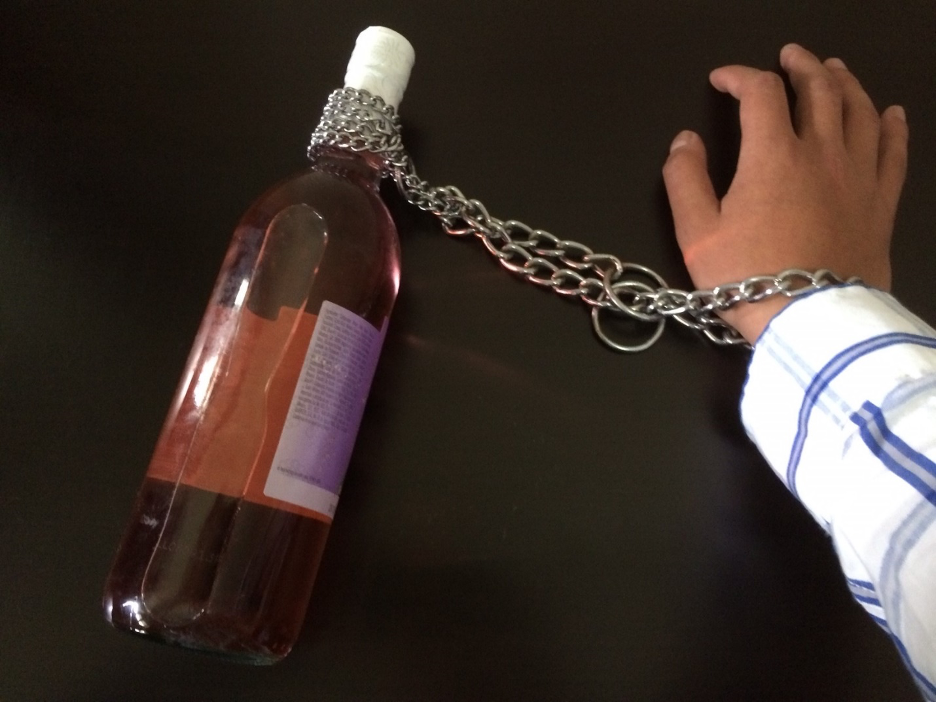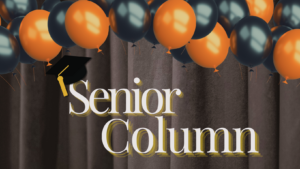Alcohol is on the Top of the List This Season
EDINBURG–The bass shakes the house full of college students. They’re dancing shoulder to shoulder, holding their third, maybe fourth cup of liquor, vision clouded by smoke. Moments later, some people are hunched over toilet bowls, passed out on the floor, and few are acting irritated. Those who are conscious feel confused or have lost their coordination. Their friends encourage them to drink more alcohol to feel euphoric. Six drinks consumed, then seven, then eight. Once the party’s over, some don’t recall the night, and few don’t ever wake up.
This scenario occurs much more often than one would think as 14 million Americans abuse alcohol. According to alcohol.org, during Halloween, 18% of men and 12% of women binge drink either beer, tequila or vodka. Once the winter holiday season hits, rates slightly increase to 23% for men and 18% for women, adding champagne and wine to their alcoholic options. Binge drinking rates significantly rise on New Year’s Eve, raising the stakes to 47% for men and 40% for women. Additionally, 80% of college students will abuse alcohol, according to alcoholrehabguide.org.
Eluterio Blanco, a clinical assistant professor and addiction studies coordinator for the School of Rehabilitation Services and Counseling at the University of Texas Rio Grande Valley, recalled times when one patient had no alcohol withdrawals and the other did.
While working at a residential treatment site, a man came in and after tests, and it was discovered he’d been drinking close to a bottle of vodka a day. Blanco was
concerned due to alcohol withdrawal, and the reactions that could surface from it, but the patient didn’t suffer from any symptoms.
Another case Blanco saw led to a patient going to the hospital. The person came to Blanco’s rehabilitation site showing no signs of withdrawals at first, but the clinical assistant professor soon took notice as a symptom revealed itself. The patient walked around and began to shake, convulsed, then had a seizure. The rehabilitation site sent the patient to a hospital.
The clinical assistant professor added a reason for these rates and cases on alcohol abuse is people’s “perception of harm.”

“People don’t know the harms of alcohol really; probably because [they think] it’s legal. Usually, people will assume if it’s legal, then it’s safe or it’s not as bad as other drugs, like heroin or cocaine or something,” Blanco said. “You [have] your cigarettes and alcohol; those are harmful substances. Some people just don’t perceive it as harmful.” As a result of these statistics, universities, such as UTRGV, have made efforts to assist students in examining their drinking behavior in a non-judgmental environment.
On Oct. 22, the staff from the UTRGV Collegiate Recovery Program tabled at the Student Union in Edinburg. Laid out were an assortment of merchandise from the program, a short survey for participants to reflect their alcohol consumption and flyers about the services offered. One of these staff members was Victoria Castaneda, the Brief Alcohol Screening and Intervention for College Students (BASICS) facilitator at UTRGV.
“We’re really trying to de-escalate the problem with binge drinking and going for that safer drinking use,” Castaneda said. “We also go over alcohol poisoning and that it’s not normal to pass out drunk every night or every other weekend.”
The program is a free, two one-hour sessions. The first session is based around alcoholic education and the second session, students go over an online survey they took. Some questions include, “How often during the last year have you had a feeling of guilt or remorse after drinking?” and “Have you or someone else been injured because of your drinking?”.
“Most of our referrals, we get them from Student Rights and Responsibilities from students that … are in the dorms that [resident assistants] did a wellness check and they found alcohol in their rooms, student athletes; anybody that’s on campus caught drinking or affiliated with drinking or drugs gets sent to SRR,” Castaneda said. “I get referrals from SRR and get in contact with the student and then we go through the two sessions in BASICS.” Also, the UTRGV Collegiate Recovery Program hosts Al-Anon Family Group sessions, which is for family members and friends who know somebody has a drinking problem. Meetings start at noon every Thursday at University Center Room 102 in Edinburg.
“My grandfather has an [alcohol addiction]; I can go to Al-Anon and they’ll teach me basic skills on how to detach with love,” Castaneda added. “Detaching with love sounds kind of … mean but … alcoholics [are] very manipulative [and they make] sure they’re getting what they want. We [have] to learn how to support that person but not give them my whole self because that’s their problem and I have my problems and I shouldn’t try to fix [their problems] because I can’t.”
Although there are resources at universities and in the community, some reject any form of help or recovery. The Collegiate Recovery Program’s Assistant Director Krystal Klein recalls a time where that happened. She has previously worked in DWI
cases and, sometimes, had cases lead to Child Protective Services’ involvement. While at an outpatient clinic at Pharr, she worked in a car crash case where a mother killed four people with her vehicle and had no fatalities on her side of the accident. Klein said authorities couldn’t verify if she was drinking and stated that she blamed the victim for being in her lane. Klein added the woman didn’t seek treatment and continued to drink because “that was her way of coping with the situation.”
“The reasoning … behind that is, as a single mother, it’s hard for someone to step away and go to treatment and get the help they need,” Klein said. “When they feel like they have to be there day-to-day to support their children, regardless of the big picture we see, as professionals, it’s hard for them to see that when they’re in a cycle of addiction.”
The assistant director added that stigmas cause people not to seek treatment. She also said in some cultures, such as college and university students, the idea of drinking on a regular has become a form of social acceptance. Klein added that not being able to handle alcohol, someone choosing to stay sober or even seeking help for such an addiction can also lead to said stigma. Klein added that people say it’s a sign of weakness when that is far from the case.
To seek further assistance for someone suffering from mental and/or substance abuse, call the Substance Abuse and Mental Health Services Administration’s confidential 24/7, 365-day-a-year helpline at 1-800-622-4357.





